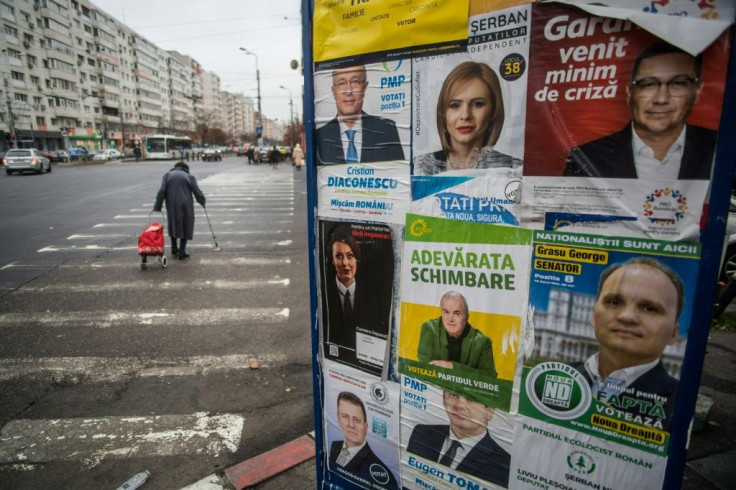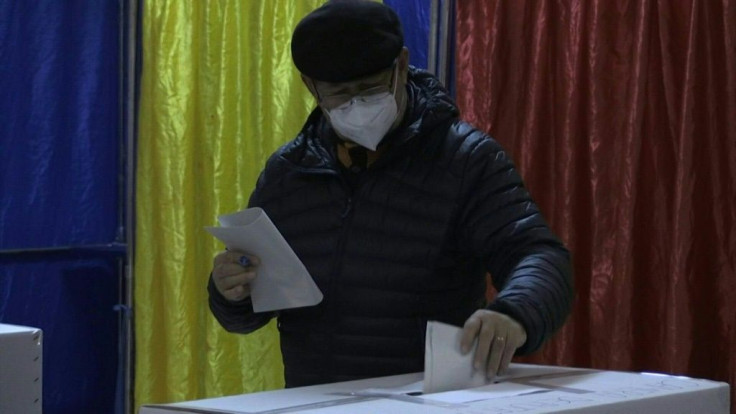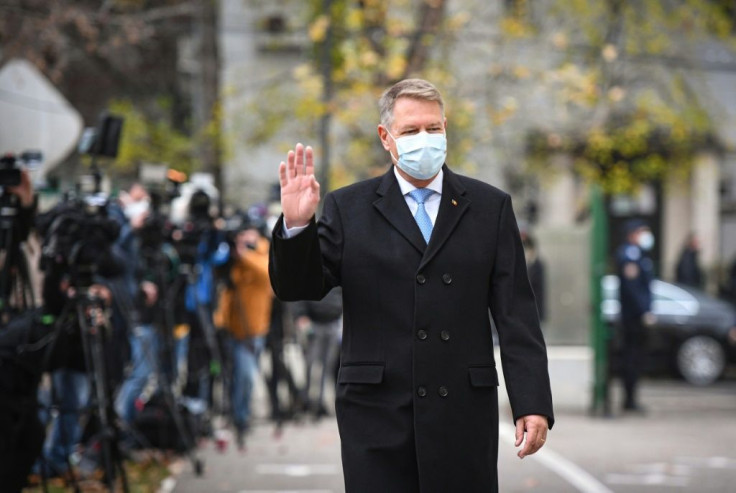Romania's Pro-European Party On Course To Stay In Power
Romania's governing pro-European liberals appeared well-placed to stay in power Monday following elections, despite a strong showing by the opposition socialists, according to partial results.
The opposition Social Democrats (PSD) have dominated Romanian politics since the collapse of communism but their last spell in government was overshadowed by street protests and clashes with Brussels over judicial reforms - before ending in a vote of no-confidence in 2019.
Romania is one of the EU's poorest countries, and four million of its citizens have left in recent years to seek better lives elsewhere, in particular in western EU member states.
In a region where populists and nationalists have recently gained ground, Prime Minister Ludovic Orban's governing PNL won some support by pledging to modernise Romania and keep it on a "pro-European" path.

With 90 percent of votes counted as of Monday morning, the PSD was ahead with 30 percent, while the governing liberal PNL party had taken 25.5 percent, after a vote marred by record low turnout on Sunday.
However, the PSD will lack allies in the new parliament and President Klaus Iohannis -- long a PSD foe -- has said he would not want the party to return to government during his current term, which ends in 2024.
More than 18 million Romanians were eligible to take part in the vote, carried out with the now familiar virus safety measures of social distancing, mask-wearing and hand disinfectant.
But broad disillusion with Romania's political class along with a harsh second wave of the coronavirus pandemic depressed turnout, which stood at around 33 percent, a record low for a parliamentary election.

After an earlier exit poll showed the PSD putting in an unexpectedly strong performance, PSD leader Marcel Ciolacu said: "I expect Orban's resignation, it's what Romanians have asked for with their votes."
However, if the trends in the initial results are confirmed the PNL should be on course to form a government in alliance with the smaller, recently formed USR-Plus party, which has so far won 15 percent.
It can also ally with the small UDMR party representing the country's Hungarian minority, which appeared set to win six percent and has said it wants to cooperate with the liberals.

Orban noted that the result could be affected by votes cast by Romanians abroad, which will mostly be counted on Monday.
Those living outside Romania are younger than average and thought to favour USR-Plus and its promise to clean up Romania's political scene.
Some 260,000 expatriate Romanians cast ballots, double the 2016 figure.
After casting his vote at a Bucharest school, 63-year-old retired electrician Gheorghe Preda said he had "no hope" of change.
He said the two big parties "have been taking turns in power for 30 years and make lots of promises during the campaign, but forget them afterwards".
But 104-year-old philosopher Mihai Sora, who won the admiration of many Romanians for doggedly turning out for hours during anti-corruption protests in recent years, said staying away from the polls was not an option.
"I voted with trust and hope, in thinking of my country and the future of its people," he wrote in a Facebook post.
Mother of two Adina Ionescu, 42, said she was hoping for "a government of young people, which cares about the environment and about Romanians' welfare".
The PNL had the advantage of being supported by Iohannis, who brushed aside criticism that he disrespected his constitutional role by campaigning for the liberals.
Orban's government has said it will not reimpose a full lockdown like the one in the spring, but experts fear an explosion of cases in the weeks to come.
© Copyright AFP 2024. All rights reserved.











